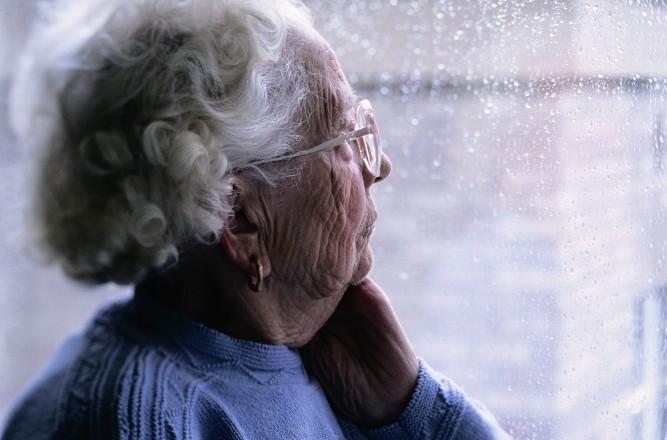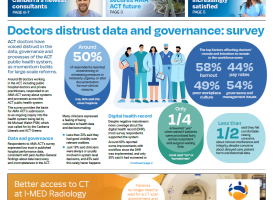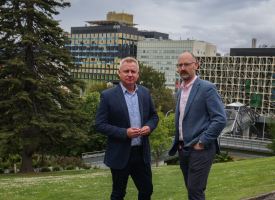Privatised aged care assessments will result in poorer health outcomes
Don’t outsource the one segment of aged care that’s working well, urges AMA

The AMA is urging the Federal Government to scrap plans that could potentially privatise the assessment process for aged care services, warning the move would risk the health of older Australians and open the system up to conflicts of interest.
The Government abandoned similar plans last year after strong opposition from state governments, aged care advocates and medical peak bodies.
AMA President, Dr Omar Khorshid, has written to the Minister for Senior Australians and Aged Care Services, the Hon Senator Richard Colbeck expressing his concern with the market approach to aged care assessments.
The AMA has long supported a single assessment workforce, but believes it must remain with the state and territory health services, and be based on Aged Care Assessment Teams (ACAT), rather than the Regional Assessment Services (RAS) model that only assesses lower needs.
While a proposal to replace ACATs and RAS with a single assessment process was a recommendation of the Royal Commission into Aged Care Quality and Safety, the Commissioners did not recommend privatisation.
The AMA says the Government’s response, that will rely on a tender process, leaves assessments open to privatisation and conflicts of interest, with providers likely to seek to take on this role.
“Aged care assessments must remain independent of aged care providers and be delivered by health professionals, especially geriatricians who are trained in dealing with the complex medical needs of the frail and elderly,” Dr Khorshid said.
“The Royal Commission’s recommendation was very clear that assessors must be independent from providers because they are effectively deciding on a person’s level of funding for aged care services like home care packages, among other things.
“State operated public hospitals and ACATs have the necessary medical expertise and are independent of aged care providers, who should never be allowed to assess health needs as well as recommend and supply services for older Australians.
“A market-based approach is a recipe for aged care service providers to put profits before patients.
“The Government’s plan will see states and territories required to tender for a job they already do well, creating a whole lot of unnecessary inefficiency. It’s a complete waste of time.
“Also, the Government’s preferred approach risks around $130 million being stripped from the public health system to go to private providers, undermining the independence that currently exists.
“If an older person becomes unwell because their condition changes, something is missed during an assessment or the services they are referred to are not adequate, they will most likely end up in a public hospital and need to go through the same assessment process all over again.
“This adds extra bureaucracy, fragments care, and means poorer outcomes for patients. It would also put extra pressure on our already over-stretched public hospitals with older Australians waiting longer in hospital beds while an assessment with an external company is arranged.
“The intention of the Royal Commissioners was to reduce bureaucracy in getting better health care to our older loved ones, but these plans would do the opposite and potentially impact many more people through the increased inefficiency.
“The Government needs to focus on the many aspects of aged care that are currently not working, instead of dismantling one of the few parts of the system that actually works well and simply needs more support,” Dr Khorshid said.
NOTES:
· Recommendation 28 of the Aged Care Royal Commission concerns a single comprehensive assessment process. Clause 1a says:
By 1 July 2023, the Australian Government should replace the Aged Care Assessment Program and the Regional Assessment Services with one assessment process. That assessment process should:
(a) be undertaken by an assessor who is independent from approved providers, so that a person’s level of funding should be determined independently of the approved provider.
· In their response, the Government said: “The assessment workforce will be recruited through an approach to market that allows all organisations with the capability to provide assessment services to participate.”
· The Government attempted to privatise aged care assessment process in late 2019, but abandoned it in early 2020, after strong opposition from stakeholders, including state and territory health ministers, the AMA and the Australian and New Zealand Society for Geriatric Medicine.
· Aged care assessments are imperative for picking up new dementia cases. In 2012, 29 per cent of patients were only diagnosed with dementia for the first time during an ACAT assessment in a single catchment area1. These people are then referred to relevant aged care services by ACAT assessors, often with a primary focus on transition, restorative and reablement care.
· In our recent research paper, Putting Healthcare back into Aged Care the AMA strongly argued for the end to the separation between healthcare and aged care and that our older and most vulnerable have the same access to healthcare as anyone else in the community, which is currently not the case.
1 https://onlinelibrary.wiley.com/doi/full/10.1111/imj.13174 - “the memory clinics were responsible for diagnosing 29% of all dementia cases within the catchment area, while the ACAT service reviewed approximately 19% of all previously diagnosed dementia cases.”



